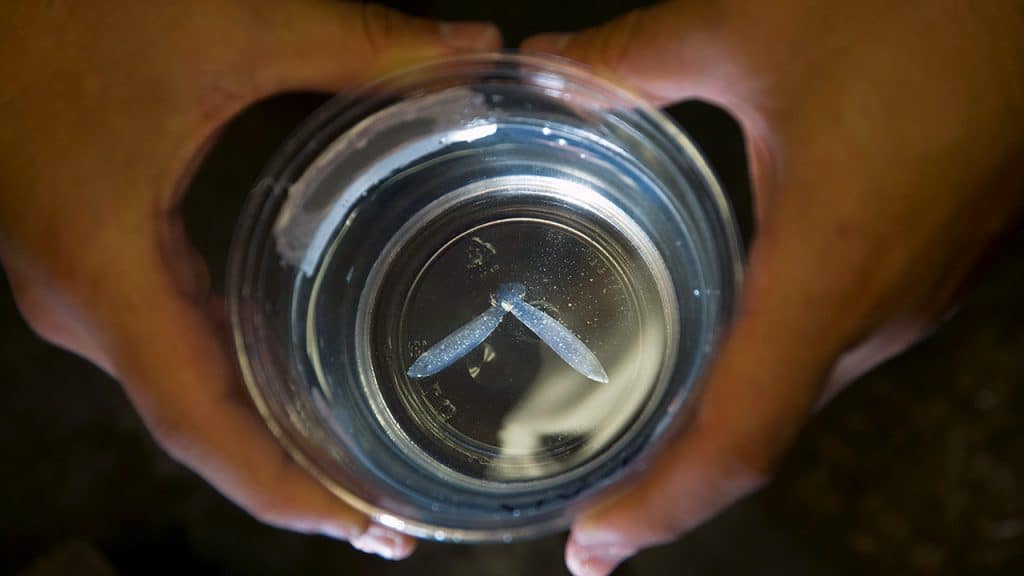As the oceans become more acidic due to the increase of carbon dioxide in the atmosphere, marine scientists are studying how organisms, such as the developing squid shown here, respond to changes in their environment. Squid are considered key species because of their central role as the primary prey for many top predators and the consumers of smaller prey, a role that supports healthy ecosystems and global fisheries. WHOI biologist T. Aran Mooney and WHOI-MIT Joint Program graduate student Casey Zakroff are conducting research which has shown that ocean acidification can cause delayed development in squid. Squid reared in more acidic seawater were about 5 percent smaller in size and had malformed statoliths, an organ squid rely on for orientation while swimming. (Photo by Tom Kleindinst, Woods Hole Oceanographic Institution)
Image and Visual Licensing
WHOI copyright digital assets (stills and video) contained on this website can be licensed for non-commercial use upon request and approval. Please contact WHOI Digital Assets at images@whoi.edu or (508) 289-2647.
